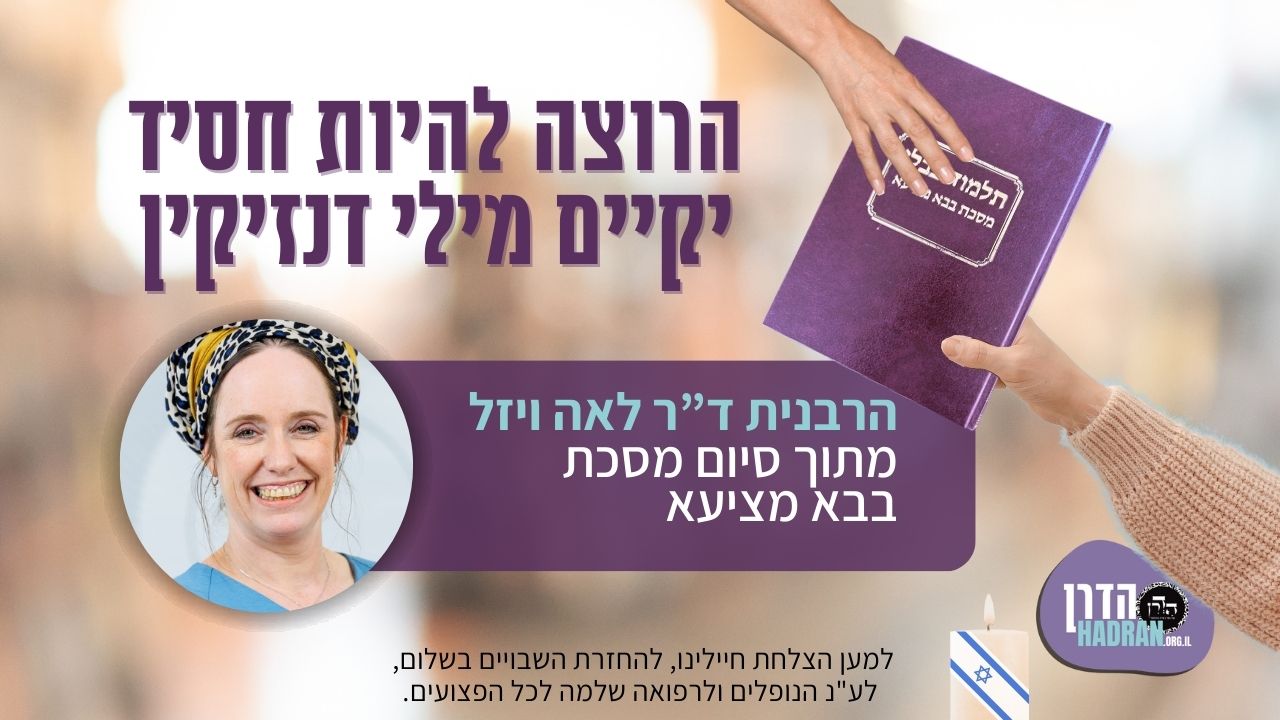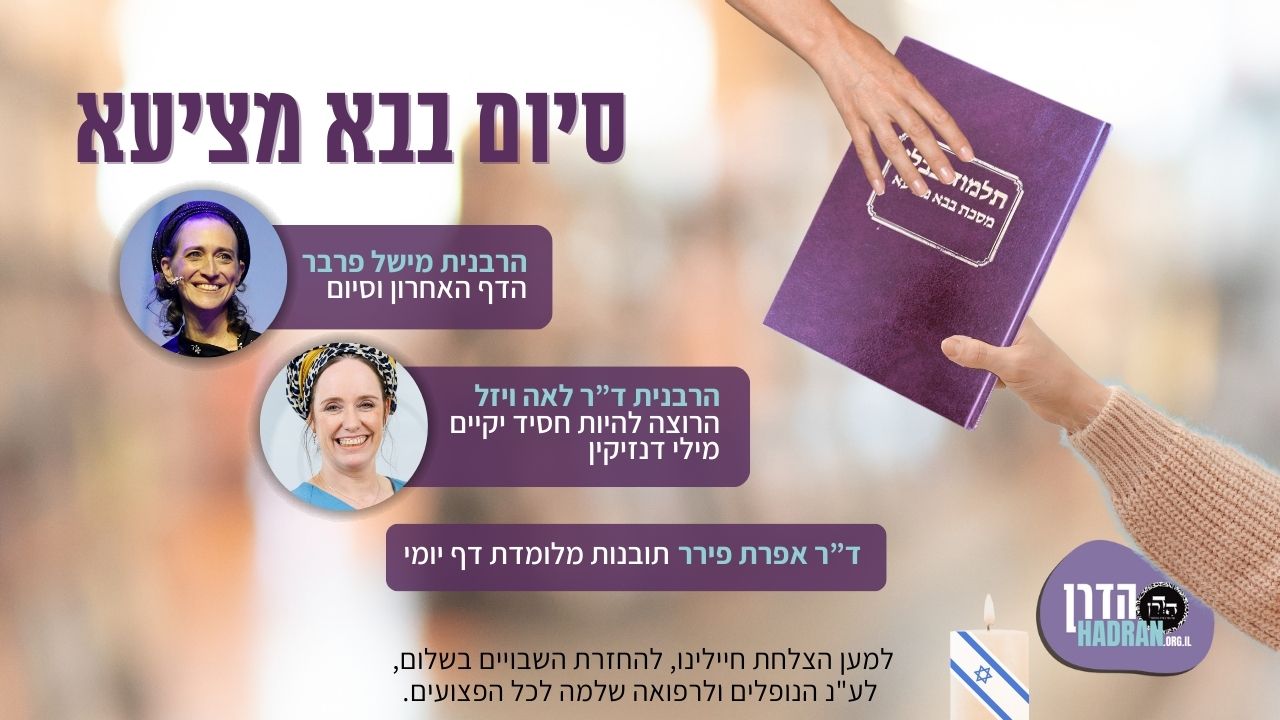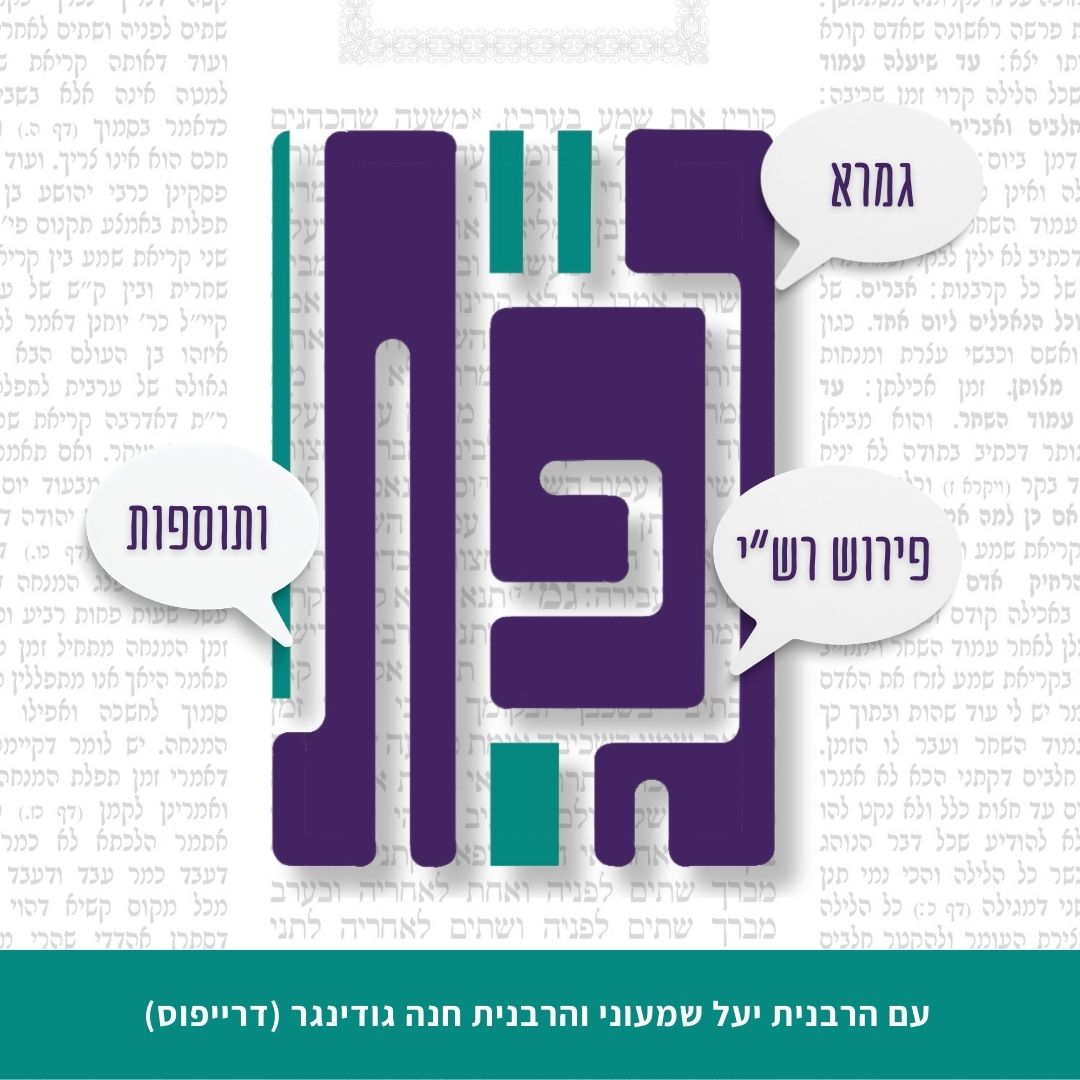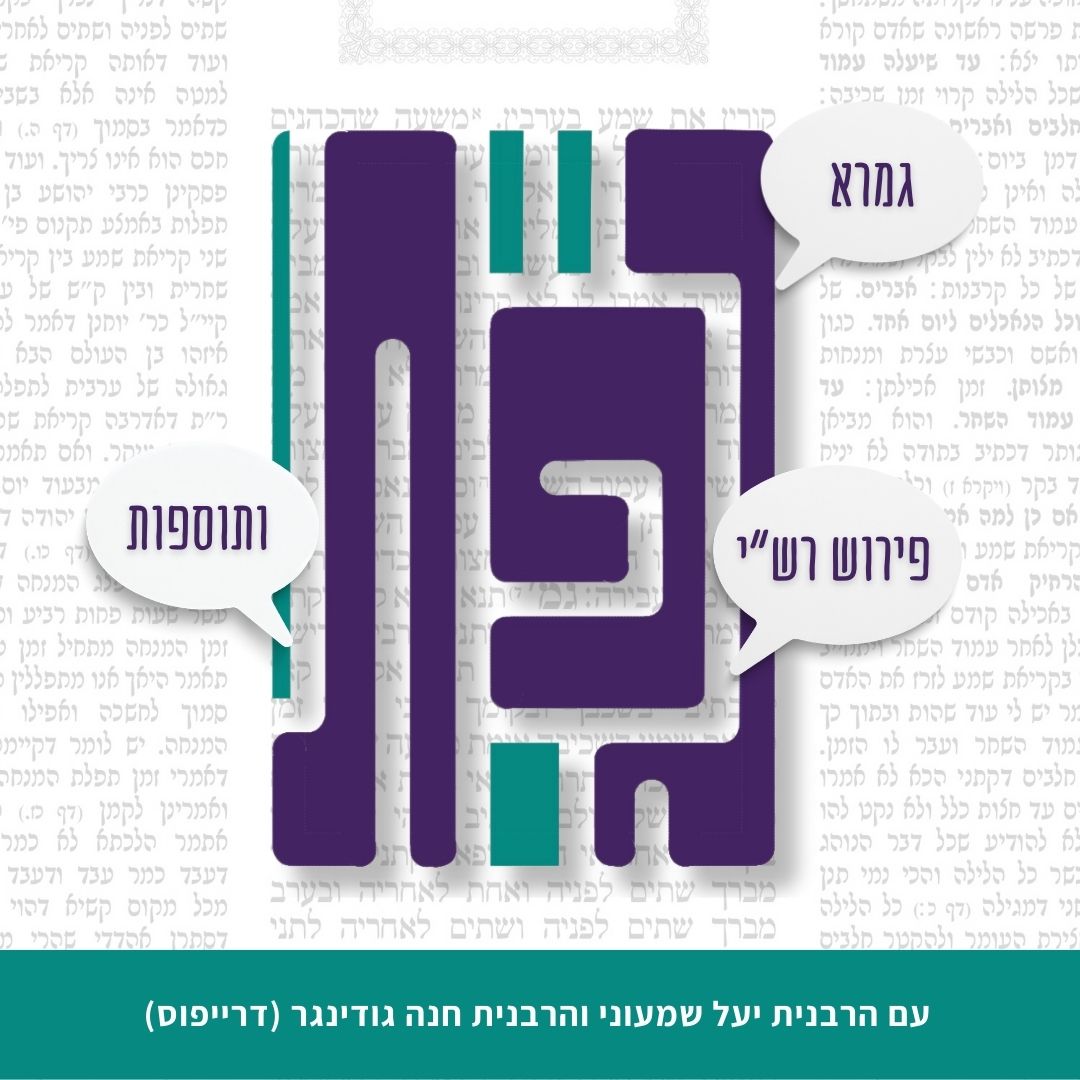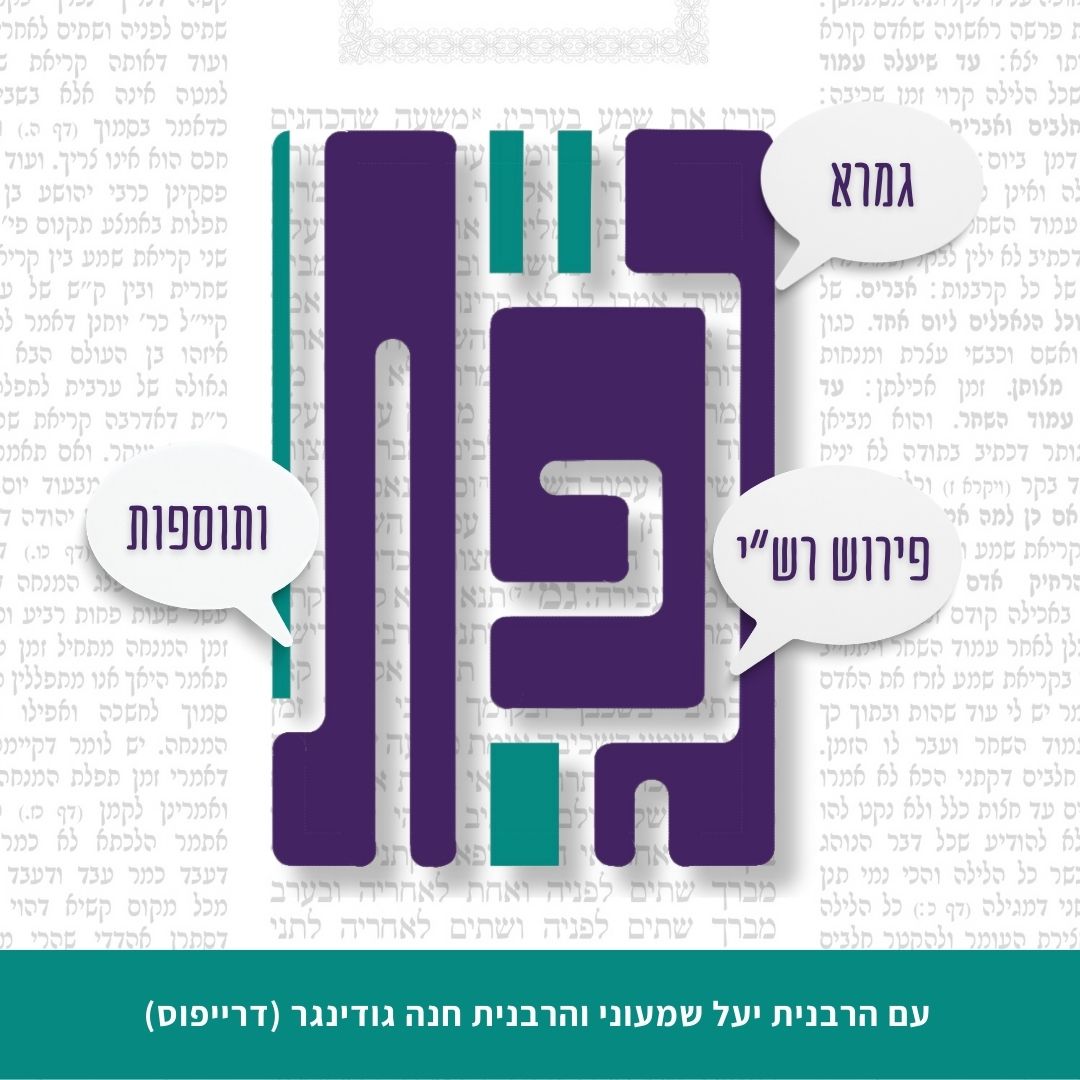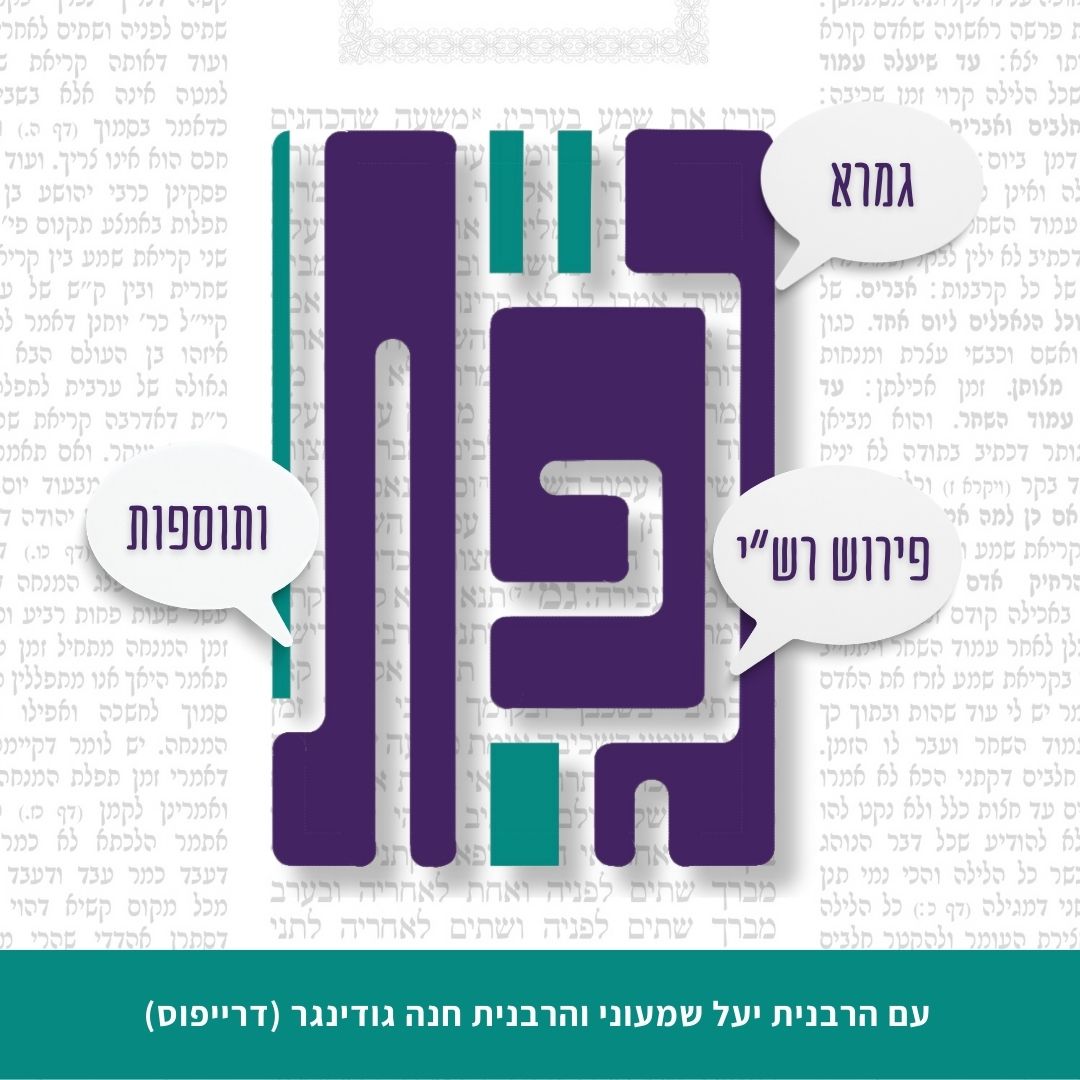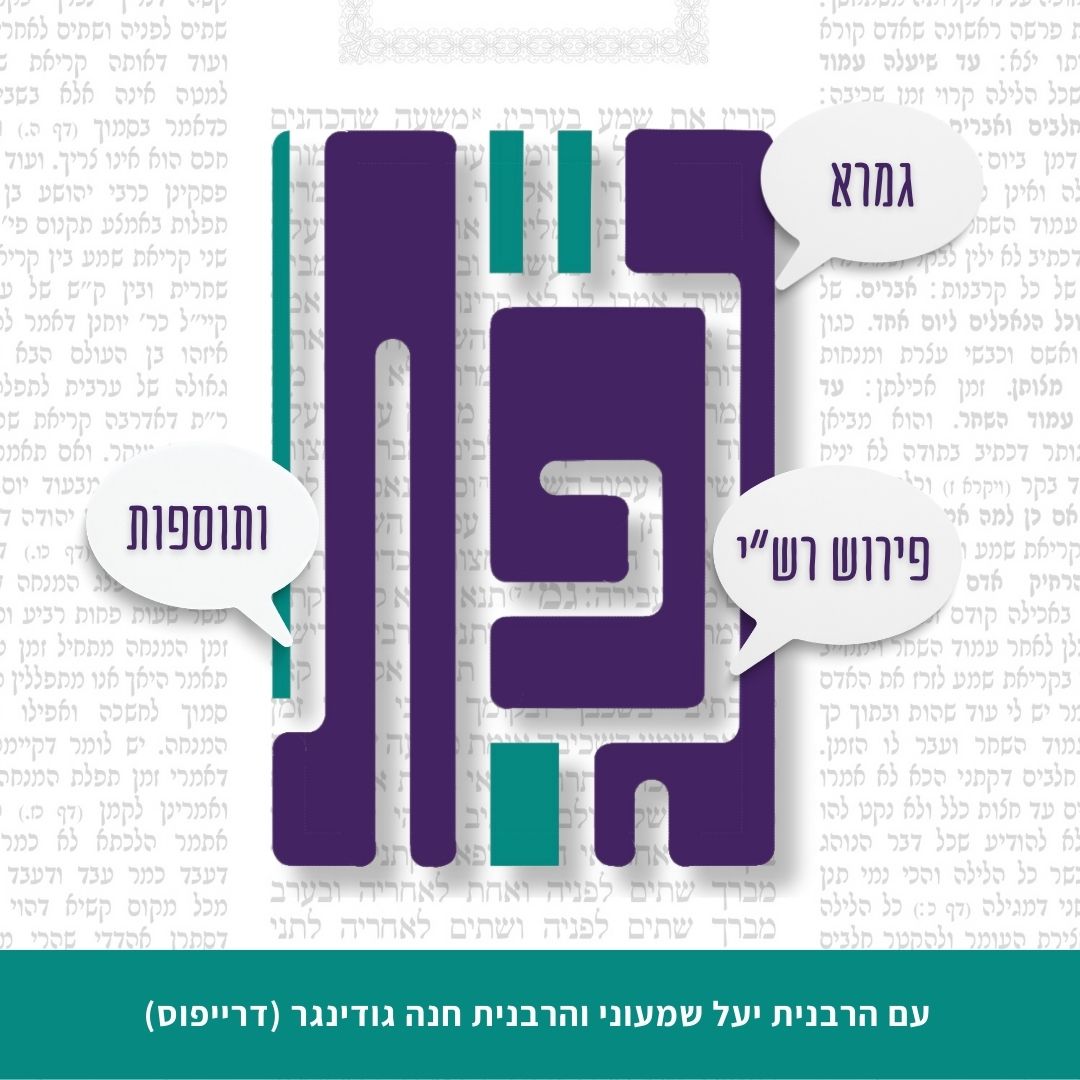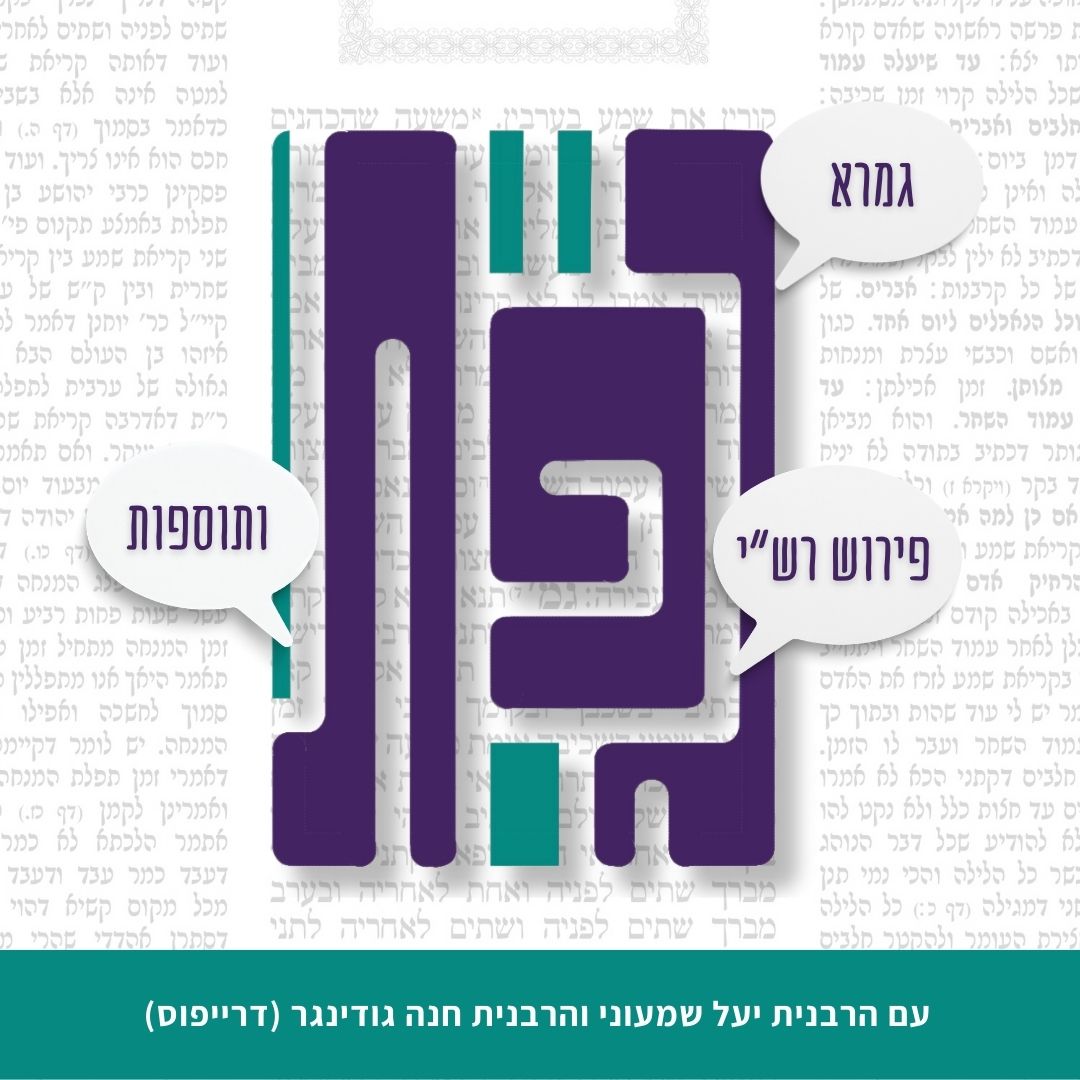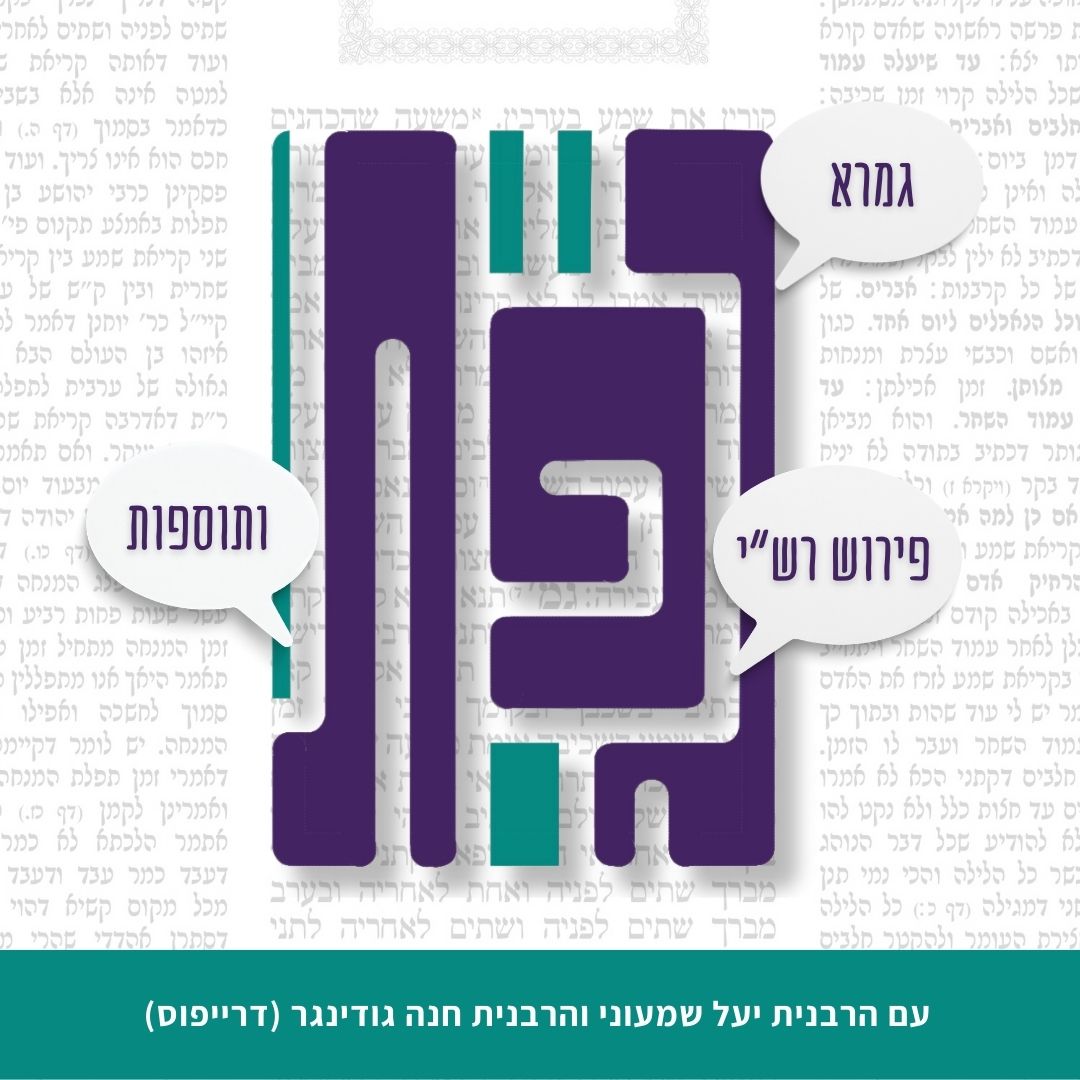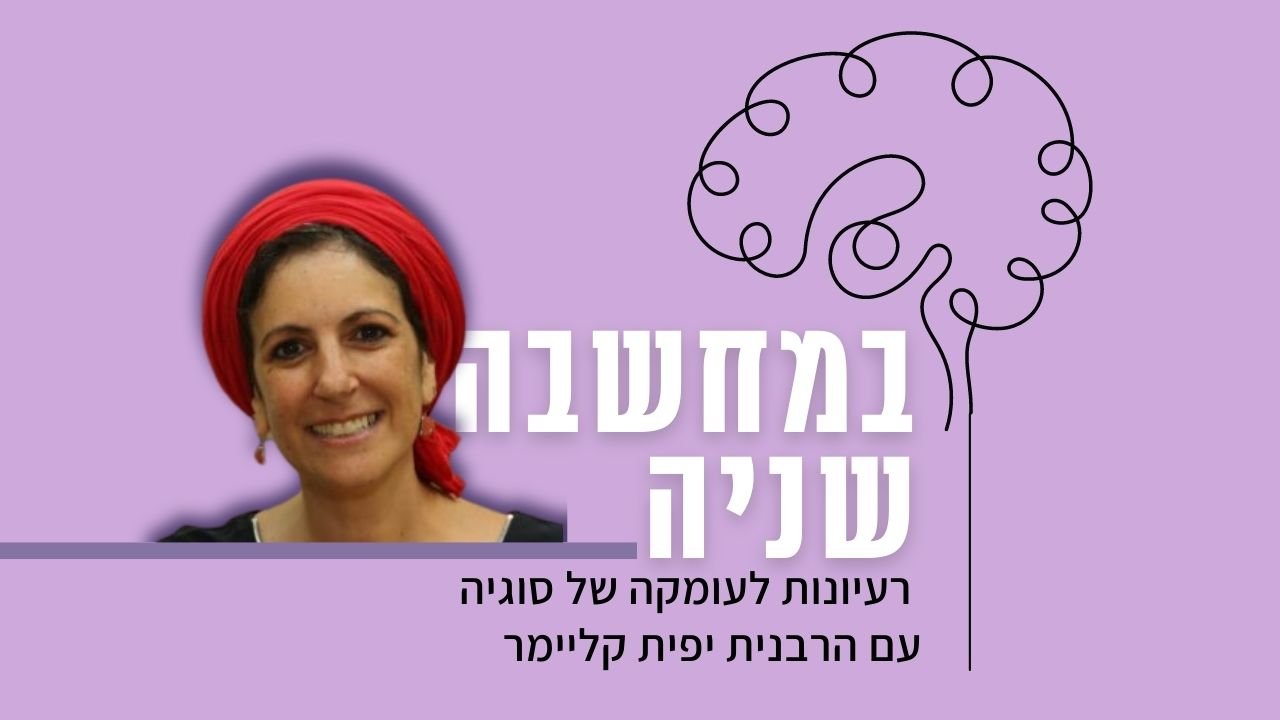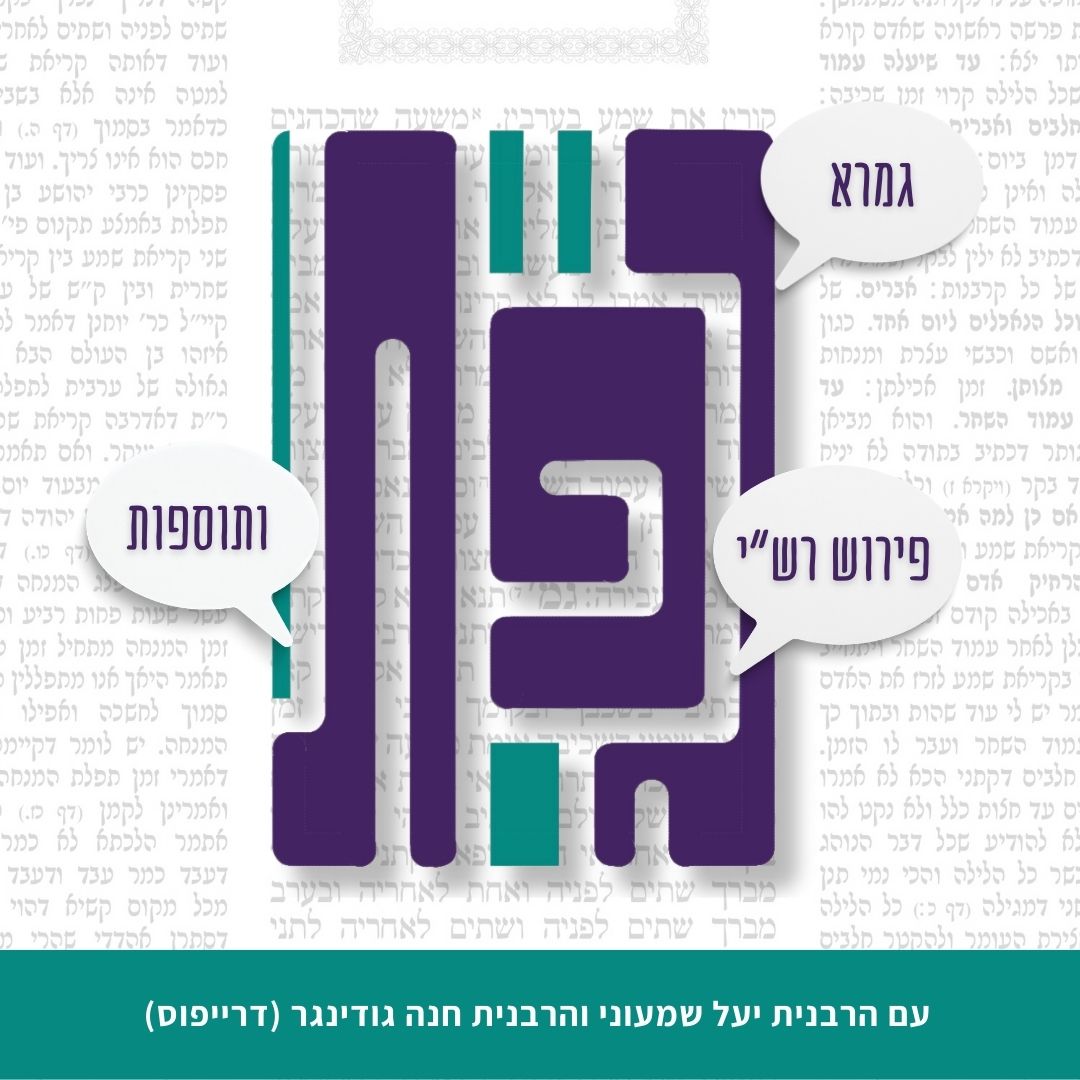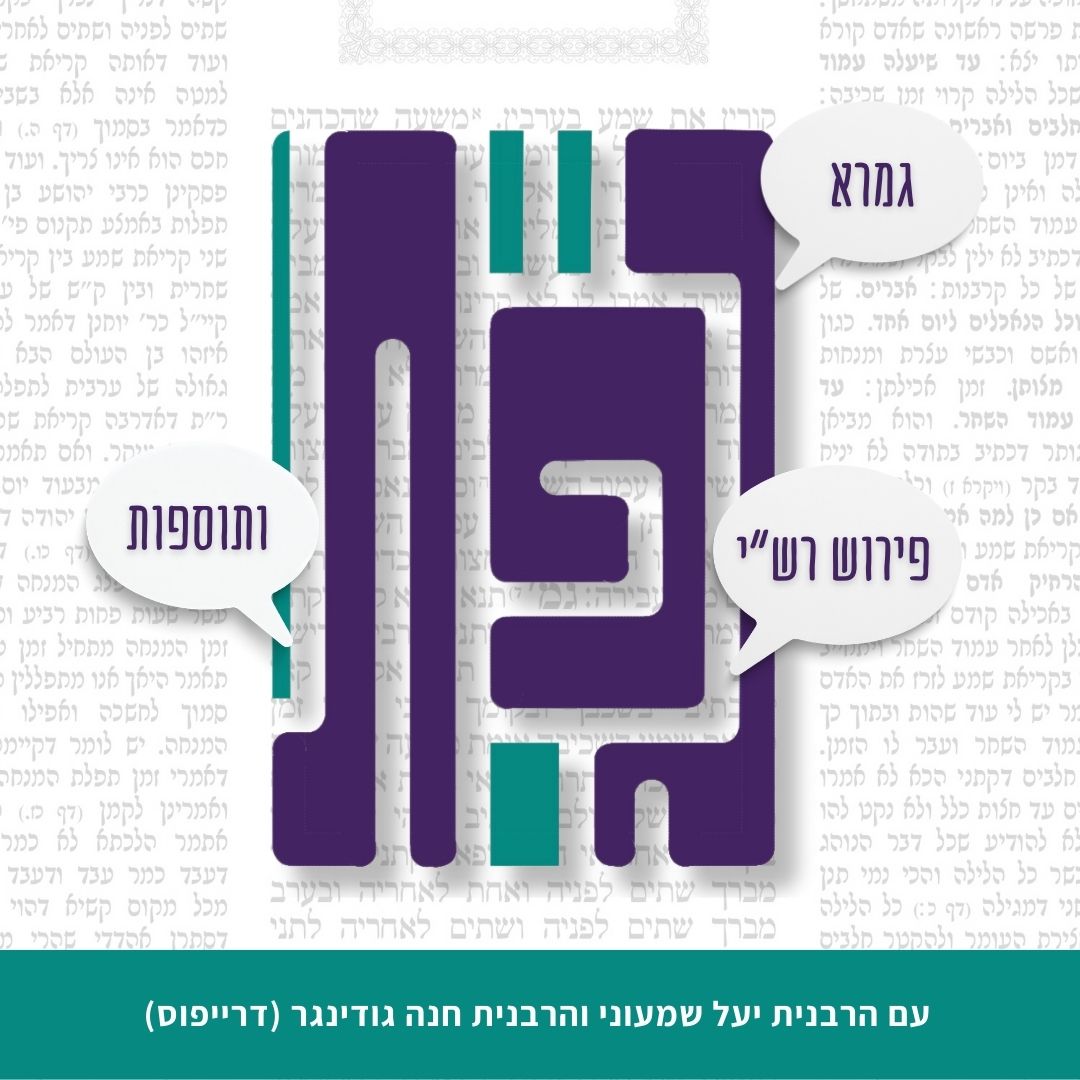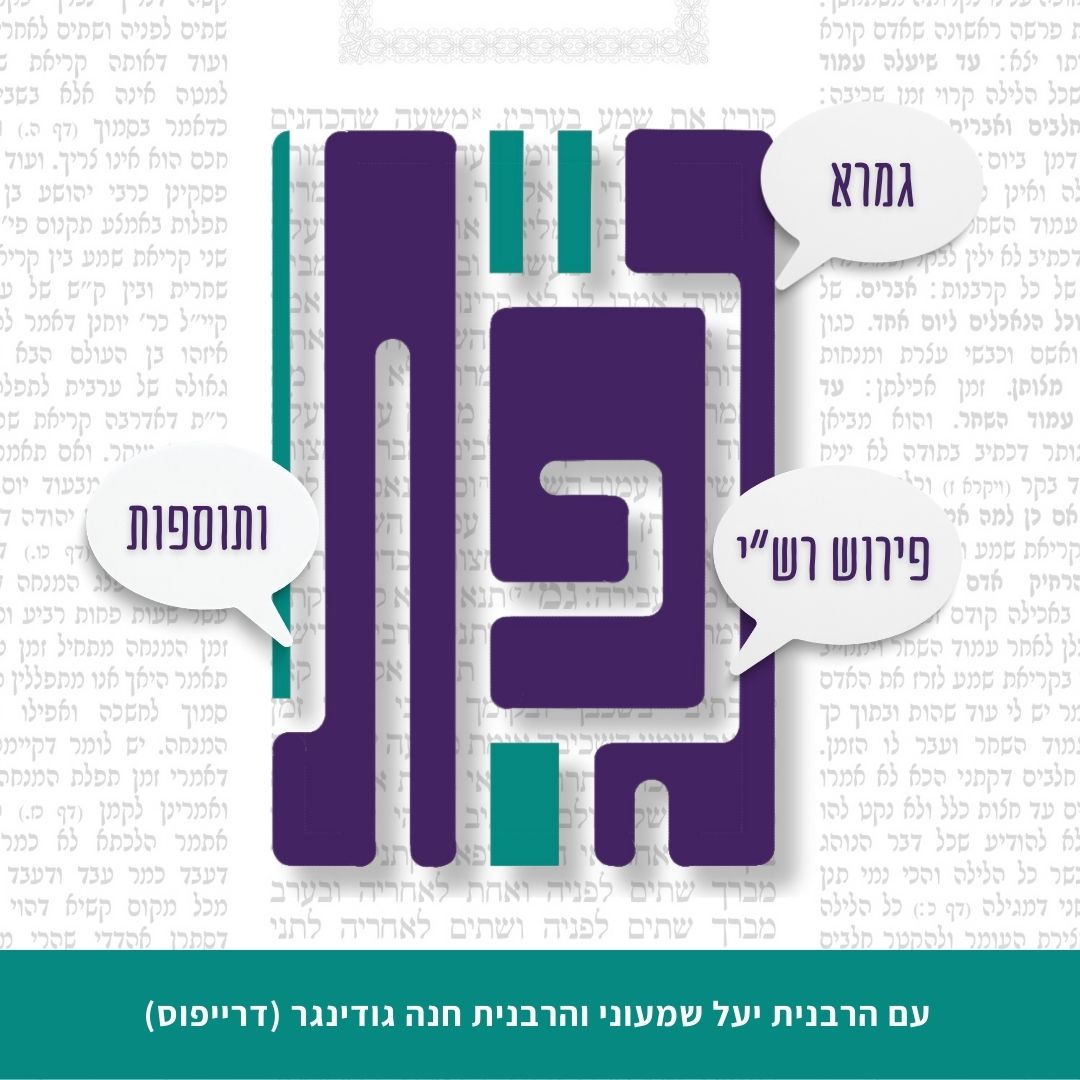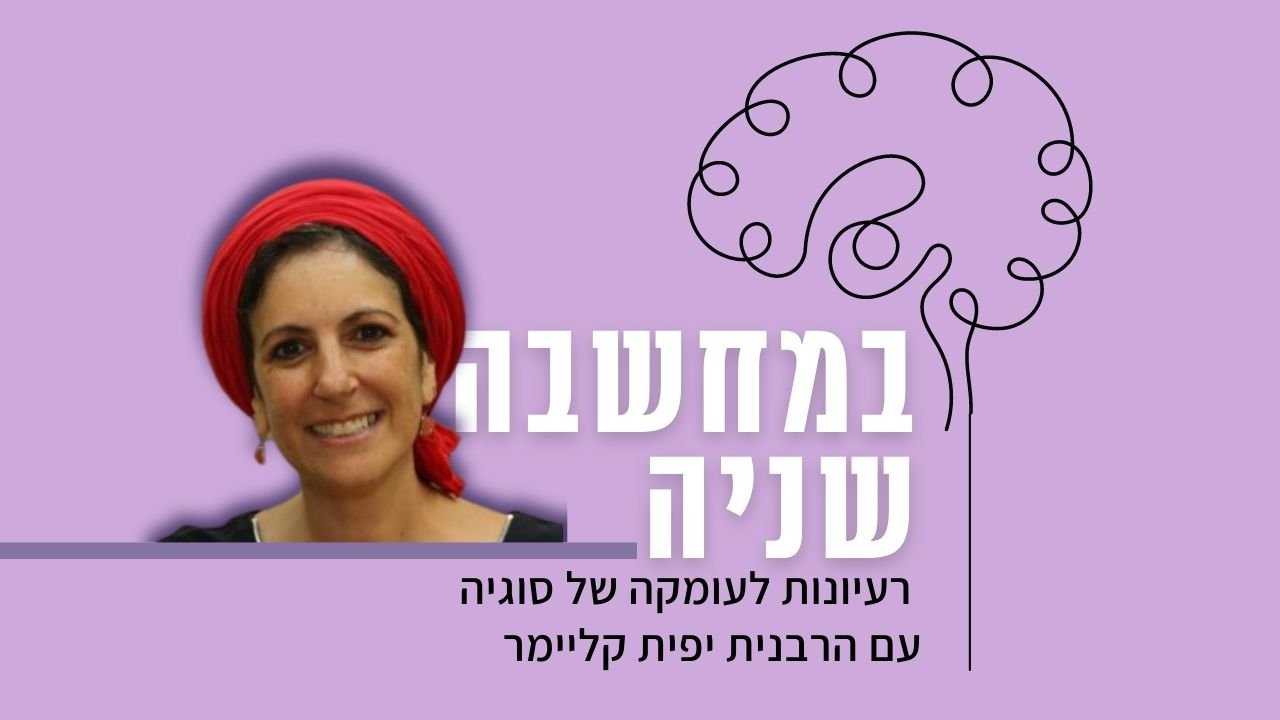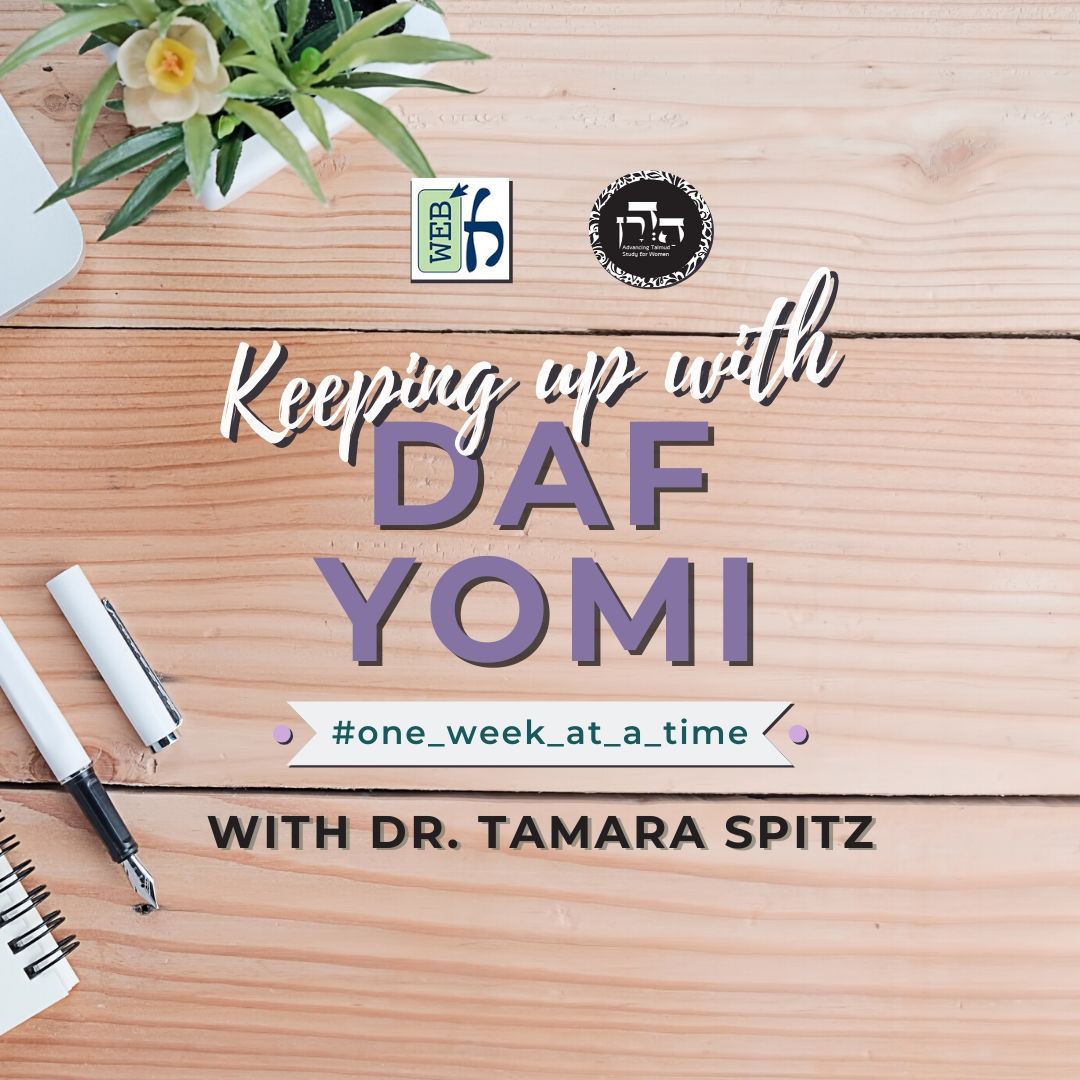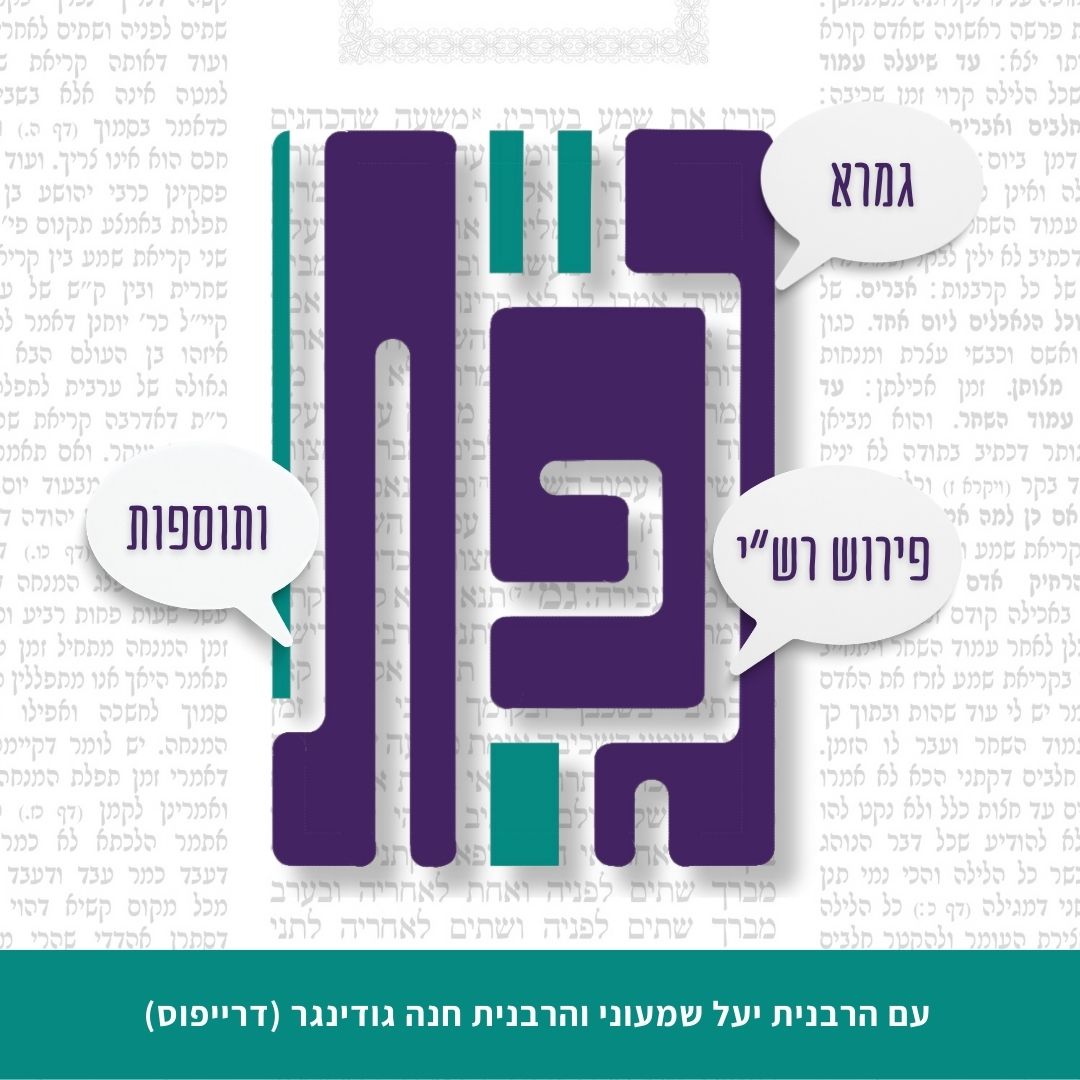בבא מציעא לג
״רֹבֵץ״ וְלֹא רַבְצָן, ״רֹבֵץ״ וְלֹא עוֹמֵד. ״תַּחַת מַשָּׂאוֹ״ וְלֹא מְפוֹרָק. ״תַּחַת מַשָּׂאוֹ״, מַשּׂאוֹי שֶׁיָּכוֹל לַעֲמוֹד בּוֹ. וְאִי אָמְרַתְּ צַעַר בַּעֲלֵי חַיִּים דְּאוֹרָיְיתָא, מָה לִי רוֹבֵץ, וּמָה לִי רַבְצָן, וּמָה לִי עוֹמֵד!
It is written: “If you see the donkey…collapsed under its burden” (Exodus 23:5). The baraita infers that this obligation to unload a burden applies with regard to an animal that is “collapsed,” but not with one that is a habitual collapser; “collapsed,” but not standing; “under its burden,” but not when it is unloaded; and “under its burden,” meaning a burden that is not excessive, that the animal can bear. The Gemara reasons: And if you say that the requirement to prevent suffering to animals is by Torah law, what is it to me if the animal is collapsed; and what is it to me if the animal is a habitual collapser; and what is it to me if the animal is standing? One should be obligated to unload its burden in any case, if the animal is suffering.
הָא מַנִּי? רַבִּי יוֹסֵי הַגְּלִילִי הִיא, דְּאָמַר צַעַר בַּעֲלֵי חַיִּים דְּרַבָּנַן.
The Gemara answers: In accordance with whose opinion is this baraita? It is in accordance with the opinion of Rabbi Yosei HaGelili, who says that the requirement to prevent suffering to animals is by rabbinic law, and the ordinance does not apply in these circumstances.
הָכִי נָמֵי מִסְתַּבְּרָא, דְּקָתָנֵי: ״תַּחַת מַשָּׂאוֹ״ – מַשּׂאוֹי שֶׁיָּכוֹל לַעֲמוֹד בּוֹ, מַאן שָׁמְעַתְּ לֵיהּ דְּאִית לֵיהּ הַאי סְבָרָא – רַבִּי יוֹסֵי הַגְּלִילִי, שְׁמַע מִינַּהּ.
The Gemara supports its answer: So too, it is reasonable to explain the baraita in this manner, as it is taught in the baraita cited above: “Under its burden” indicates a burden that the animal can bear. About whom did you hear that he holds that line of reasoning? It is Rabbi Yosei HaGelili. The Gemara affirms: Learn from it that the baraita is in accordance with the opinion of Rabbi Yosei HaGelili.
וּמִי מָצֵית מוֹקְמַתְּ לַהּ כְּרַבִּי יוֹסֵי הַגְּלִילִי? וְהָא קָתָנֵי סֵיפָא: ״תַּחַת מַשָּׂאוֹ״ – וְלֹא מְפוֹרָק. מַאי ״לֹא מְפוֹרָק״? אִילֵּימָא לֹא מְפוֹרָק כְּלָל, הָא כְּתִיב: ״הָקֵם תָּקִים עִמּוֹ״! אֶלָּא פְּשִׁיטָא: ״לֹא מְפוֹרָק״ בְּחִנָּם, אֶלָּא בְּשָׂכָר, מַאן שָׁמְעַתְּ לֵיהּ דְּאִית לֵיהּ הַאי סְבָרָא – רַבָּנַן! לְעוֹלָם רַבִּי יוֹסֵי הַגְּלִילִי הִיא, וּבִטְעִינָה סָבַר לַהּ כְּרַבָּנַן.
The Gemara asks: And can you establish the baraita in accordance with the opinion of Rabbi Yosei HaGelili? But isn’t it taught in the latter clause of the baraita: “Under its burden,” but not when it is unloaded? What is the meaning of: Not when it is unloaded? If we say that it means that when it is unloaded there is no obligation at all, isn’t it written in that case: “You shall lift them with him” (Deuteronomy 22:4), teaching that there is a mitzva to load an animal? Rather, it is obvious that the meaning is that when it is unloaded, one is not obligated to load it for free; rather, he may do so for remuneration. About whom did you hear that he holds that line of reasoning? It is the Rabbis. Apparently, the baraita is in accordance with the opinion of the Rabbis and not the opinion of Rabbi Yosei HaGelili. The Gemara answers: Actually, the baraita is in accordance with the opinion of Rabbi Yosei HaGelili, and in the matter of loading he holds in accordance with the opinion of the Rabbis.
תָּנוּ רַבָּנַן: ״כִּי תִרְאֶה״ – יָכוֹל אֲפִילּוּ מֵרָחוֹק, תַּלְמוּד לוֹמַר: ״כִּי תִפְגַּע״. אִי ״כִּי תִפְגַּע״, יָכוֹל פְּגִיעָה מַמָּשׁ? תַּלְמוּד לוֹמַר: ״כִּי תִרְאֶה״. וְאֵיזוֹ הִיא רְאִיָּיה שֶׁיֵּשׁ בָּהּ פְּגִיעָה – שִׁיעֲרוּ חֲכָמִים אֶחָד מִשֶּׁבַע וּמֶחֱצָה בְּמִיל, וְזֶה הוּא רִיס.
The Sages taught in a baraita: It is written: “If you see the donkey of him that hates you collapsed under its burden…you shall release it with him” (Exodus 23:5). I might have thought one is obligated even if he sees the animal from a distance; therefore the previous verse states: “If you encounter your enemy’s ox or his donkey going astray, you shall return it to him” (Exodus 23:4). If the Torah had written only: “If you encounter,” I might have thought that one is obligated to unload the burden only if there was an actual encounter; therefore, the verse states: “If you see.” And what is seeing in which there is an element of encounter? The Sages calculated it as one of seven and a half portions, i.e., two-fifteenths, of a mil, and that is the measure of a ris.
תָּנָא: וּמִדַּדֶּה עִמּוֹ עַד פַּרְסָה. אָמַר רַבָּה בַּר בַּר חָנָה: וְנוֹטֵל שָׂכָר.
It is taught in a baraita: After loading the burden onto the animal, one walks with it up to one parasang [parsa] to ensure that the burden will not fall again. Rabba bar bar Ḥana says: And he takes remuneration for accompanying the animal, as that is not included in the mitzva.
מַתְנִי׳ אֲבֵדָתוֹ וַאֲבֵדַת אָבִיו – אֲבֵדָתוֹ קוֹדֶמֶת. אֲבֵדָתוֹ וַאֲבֵדַת רַבּוֹ – שֶׁלּוֹ קוֹדֵם.
MISHNA: If one finds his lost item and his father’s lost item, tending to his own lost item takes precedence. Similarly, if one finds his lost item and his teacher’s lost item, tending to his own lost item takes precedence.
אֲבֵדַת אָבִיו וַאֲבֵדַת רַבּוֹ – שֶׁל רַבּוֹ קוֹדֶמֶת, שֶׁאָבִיו הֱבִיאוֹ לָעוֹלָם הַזֶּה, וְרַבּוֹ שֶׁלִּמְּדוֹ חׇכְמָה מְבִיאוֹ לְחַיֵּי הָעוֹלָם הַבָּא. וְאִם אָבִיו חָכָם – שֶׁל אָבִיו קוֹדֶמֶת.
If one finds his father’s lost item and his teacher’s lost item, tending to his teacher’s lost item takes precedence, as his father brought him into this world, and his teacher, who taught him the wisdom of Torah, brings him to life in the World-to-Come. And if his father is a Torah scholar, then his father’s lost item takes precedence.
הָיָה אָבִיו וְרַבּוֹ נוֹשְׂאִין מַשּׂאוֹי – מַנִּיחַ אֶת שֶׁל רַבּוֹ, וְאַחַר כָּךְ מַנִּיחַ אֶת שֶׁל אָבִיו. הָיָה אָבִיו וְרַבּוֹ בְּבֵית הַשְּׁבִי – פּוֹדֶה אֶת רַבּוֹ, וְאַחַר כָּךְ פּוֹדֶה אֶת אָבִיו. וְאִם אָבִיו חָכָם – פּוֹדֶה אֶת אָבִיו, וְאַחַר כָּךְ פּוֹדֶה אֶת רַבּוֹ.
If his father and his teacher were each carrying a burden and he wants to assist them in putting down their burdens, he first places his teacher’s burden down and thereafter places his father’s burden down. If his father and his teacher were in captivity, he first redeems his teacher and thereafter redeems his father. And if his father is a Torah scholar, he first redeems his father and thereafter redeems his teacher.
גְּמָ׳ מְנָא הָנֵי מִילֵּי? אָמַר רַב יְהוּדָה אָמַר רַב, אָמַר קְרָא: ״אֶפֶס כִּי לֹא יִהְיֶה בְּךָ אֶבְיוֹן״, שֶׁלְּךָ קוֹדֵם לְשֶׁל כׇּל אָדָם.
GEMARA: With regard to precedence in the return of lost items, the Gemara asks: From where are these matters derived? Rav Yehuda says that Rav says that the verse states: “Only so that there shall be no needy among you” (Deuteronomy 15:4). This verse can be understood as a command, indicating that it is incumbent upon each individual to ensure that he will not become needy. Therefore, your property takes precedence over the property of any other person.
וְאָמַר רַב יְהוּדָה אָמַר רַב: כׇּל הַמְקַיֵּים בְּעַצְמוֹ כָּךְ, סוֹף בָּא לִידֵי כָּךְ.
And Rav Yehuda says that Rav says: Although that is the halakha, anyone who fastidiously fulfills this principle with regard to his property at the expense of others’ property ultimately comes to experience that fate. He will become impoverished, and others will prioritize their interests at his expense.
הָיָה אָבִיו וְרַבּוֹ נוֹשְׂאִין מַשּׂאוֹי וְכוּ׳. תָּנוּ רַבָּנַן: רַבּוֹ שֶׁאָמְרוּ רַבּוֹ שֶׁלִּמְּדוֹ חׇכְמָה, וְלֹא רַבּוֹ שֶׁלִּמְּדוֹ מִקְרָא וּמִשְׁנָה, דִּבְרֵי רַבִּי מֵאִיר. רַבִּי יְהוּדָה אוֹמֵר: כֹּל שֶׁרוֹב חׇכְמָתוֹ הֵימֶנּוּ. רַבִּי יוֹסֵי אוֹמֵר: אֲפִילּוּ לֹא הֵאִיר עֵינָיו אֶלָּא בְּמִשְׁנָה אַחַת, זֶה הוּא רַבּוֹ.
§ The mishna teaches: If his father and his teacher were each carrying a burden, he first places his teacher’s burden down and thereafter places his father’s burden down. The Sages taught in a baraita (Tosefta 2:30): His teacher, with regard to whom the tanna’im stated in the mishna that his burden takes precedence, is his teacher who taught him wisdom, i.e., the profound analysis of the Torah that constitutes the Talmud, and not his teacher who taught him Bible or Mishna; this is the statement of Rabbi Meir. Rabbi Yehuda says: The reference is to any teacher from whom one learned most of his knowledge, be it Bible, Mishna, or Talmud. Rabbi Yosei says: Even if he enlightened him in the understanding of only one mishna, that is his teacher.
אָמַר רָבָא: כְּגוֹן רַב סְחוֹרָה, דְּאַסְבְּרַן זוּהֲמָא לִיסְטְרוֹן. שְׁמוּאֵל קְרַע מָאנֵיהּ עֲלֵיהּ הָהוּא מֵרַבָּנַן דְּאַסְבְּרֵיהּ ״אֶחָד יוֹרֵד לְאַמַּת הַשֶּׁחִי וְאֶחָד פּוֹתֵחַ כֵּיוָן״.
Rava said: For example, Rav Seḥora is my teacher with regard to these matters, as he explained to me the meaning of the term in a mishna (Kelim 13:2) zuhama listeron, a utensil with a spoon on one end and a fork on the other. Shmuel rent his garment in mourning over the passing of one of the Sages who explained to him the meaning of a mishna (Tamid 3:6) that describes the two keys that opened the compartment through which the priest would enter the Sanctuary each morning: One is the key with which the priest would open the inside lock. He would insert his arm up to his armpit through a small opening in the door and reach down and open the lock that was at the bottom of the door on the inside, and he would go through that door into a compartment. And the other one is the key with which the priest opened the lock on the inner door of the compartment, through which he entered the Sanctuary, and he opened that lock directly.
אָמַר עוּלָּא: תַּלְמִידֵי חֲכָמִים שֶׁבְּבָבֶל, עוֹמְדִין זֶה מִפְּנֵי זֶה, וְקוֹרְעִין זֶה עַל זֶה. וּלְעִנְיַן אֲבֵדָה בִּמְקוֹם אָבִיו, אֵינָן חוֹזְרִין אֶלָּא לְרַבּוֹ מוּבְהָק.
Ulla says: The Torah scholars who are in Babylonia rise in deference before one another and rend their garments in mourning over one another’s passing. In contrast to Eretz Yisrael, where the preeminent Torah scholars and teachers served at the heads of the Torah academies, in Babylonia most scholars studied Torah with peers and there was no preeminent teacher. But with regard to returning a lost item in a case where both one’s father and one’s teacher lost an item, he returns the lost item only to his preeminent teacher before returning that of his father, and not to his peer or to one who taught him the meaning of one mishna or one term.
קָבָעֵי מִינֵּיהּ רַב חִסְדָּא מֵרַב הוּנָא: תַּלְמִיד וְצָרִיךְ לוֹ רַבּוֹ, מַאי? אֲמַר לֵיהּ: חִסְדָּא חִסְדָּא, לָא צְרִיכְנָא לָךְ, אַתְּ צְרִיכַתְּ לִי עַד אַרְבְּעִין שְׁנִין. אִיקְּפַדוּ אַהֲדָדֵי וְלָא עָיְילִי לְגַבֵּי הֲדָדֵי. יְתֵיב רַב חִיסְדָּא אַרְבְּעִין תַּעֲנִיָּתָא, מִשּׁוּם דַּחֲלַשׁ דַּעְתֵּיהּ דְּרַב הוּנָא. יָתֵיב רַב הוּנָא אַרְבְּעִין תַּעֲנִיָּתָא, מִשּׁוּם דְּחַשְׁדֵיהּ לְרַב חִסְדָּא.
Rav Ḥisda raised a dilemma before Rav Huna: If there is a student, and his teacher needs him because he serves as his peer and study partner, what is the halakha with regard to precedence in a case where he finds a lost item belonging to his father and one belonging to his teacher? As Rav Ḥisda was Rav Huna’s disciple-colleague, Rav Huna assumed that Rav Ḥisda was referring to himself and said to him: Ḥisda, Ḥisda, I do not need you. On the contrary, you need me until you complete forty years of study before me. They grew angry with each other over the perceived insult and the harsh reaction, and each did not enter to visit the other. Rav Ḥisda was contrite and observed forty fasts due to the fact that Rav Huna was offended, although it had not been his intention to offend him. Rav Huna observed forty fasts due to the fact that he had erroneously suspected that Rav Ḥisda was referring to the relationship between them.
אִיתְּמַר: רַב יִצְחָק בַּר יוֹסֵף אָמַר רַבִּי יוֹחָנָן: הֲלָכָה כְּרַבִּי יְהוּדָה. רַב אַחָא בַּר רַב הוּנָא אָמַר רַב שֵׁשֶׁת: הֲלָכָה כְּרַבִּי יוֹסֵי.
It was stated that Rav Yitzḥak bar Yosef says that Rabbi Yoḥanan says: The halakha is in accordance with the opinion of Rabbi Yehuda, who says that returning the teacher’s lost item takes precedence only in the case of his preeminent teacher. Rav Aḥa bar Rav Huna says that Rav Sheshet says: The halakha is in accordance with the opinion of Rabbi Yosei, who says that returning the teacher’s lost item takes precedence even if the teacher enlightened him with regard to only one mishna.
וּמִי אָמַר רַבִּי יוֹחָנָן הָכִי? וְהָאָמַר רַבִּי יוֹחָנָן: הֲלָכָה כִּסְתַם מִשְׁנָה, וּתְנַן: רַבּוֹ שֶׁלִּמְּדוֹ חׇכְמָה. מַאי ״חׇכְמָה״? רוֹב חׇכְמָתוֹ.
The Gemara asks: And did Rabbi Yoḥanan say that? But doesn’t Rabbi Yoḥanan say: The halakha is always in accordance with the opinion cited in an unattributed mishna; and we learned an unattributed opinion in the mishna that returning the teacher’s lost item takes precedence in the case of: His teacher, who taught him the wisdom of Torah. The ruling of the unattributed mishna is in accordance with the opinion of Rabbi Meir. The Gemara answers: What is the meaning of wisdom in this context? It means the majority of his wisdom.
תָּנוּ רַבָּנַן: הָעוֹסְקִין בְּמִקְרָא – מִדָּה וְאֵינָהּ מִדָּה, בַּמִּשְׁנָה – מִדָּה וְנוֹטְלִין עָלֶיהָ שָׂכָר, בַּתַּלְמוּד – אֵין לָךְ מִדָּה גְּדוֹלָה מִזּוֹ, וּלְעוֹלָם הֱוֵי רָץ לַמִּשְׁנָה יוֹתֵר מִן הַתַּלְמוּד.
The Sages taught in a baraita: For those who engage in the study of Bible, it is a virtue but not a complete virtue. For those who engage in the study of Mishna, it is a virtue and they receive reward for its study. For those who engage in the study of Talmud, you have no virtue greater than that. And always pursue study of the Mishna more than study of the Talmud.
הָא גוּפַאּ קַשְׁיָא. אָמְרַתְּ בַּתַּלְמוּד אֵין לְךָ מִדָּה גְּדוֹלָה מִזּוֹ, וַהֲדַר אָמְרַתְּ: וּלְעוֹלָם הֱוֵי רָץ לַמִּשְׁנָה יוֹתֵר מִן הַתַּלְמוּד! אָמַר רַבִּי יוֹחָנָן:
The Gemara asks: This matter itself is difficult, as the baraita is self-contradictory. You said: For those who engage in the study of Talmud, you have no virtue greater than that. And then you said: And always pursue study of the Mishna more than study of the Talmud. Rabbi Yoḥanan says:
בִּימֵי רַבִּי נִשְׁנֵית מִשְׁנָה זוֹ, שְׁבַקוּ כּוּלֵּי עָלְמָא מַתְנִיתִין וַאֲזַלוּ בָּתַר תַּלְמוּדָא, הֲדַר דְּרַשׁ לְהוּ: וּלְעוֹלָם הֱוֵי רָץ לַמִּשְׁנָה יוֹתֵר מִן הַתַּלְמוּד.
It was during the era of Rabbi Yehuda HaNasi that the beginning of this baraita extolling the study of Talmud was taught. The result was that everyone abandoned study of the Mishna and pursued the study of the Talmud. It was then that Rabbi Yehuda HaNasi taught them: And always pursue study of the Mishna more than study of the Talmud, as without a firm basis in the fundamental halakhot of the Mishna, talmudic discourse is futile.
מַאי דְּרוּשׁ? כִּדְדָרֵישׁ רַבִּי יְהוּדָה בְּרַבִּי אִלְעַאי, מַאי דִּכְתִיב: ״הַגֵּד לְעַמִּי פִּשְׁעָם וּלְבֵית יַעֲקֹב חַטֹּאתָם״?
The Gemara asks: On the basis of what homiletic interpretation did the tanna state that there is no virtue greater than the study of Talmud? It is just as Rabbi Yehuda, son of Rabbi Elai, interpreted homiletically: What is the meaning of that which is written: “Cry aloud, spare not, lift up your voice like a horn, and declare to My people their transgression and to the house of Jacob their sins” (Isaiah 58:1)?
״הַגֵּד לְעַמִּי פִּשְׁעָם״ – אֵלּוּ תַּלְמִידֵי חֲכָמִים, שֶׁשְּׁגָגוֹת נַעֲשׂוֹת לָהֶם כִּזְדוֹנוֹת. ״וּלְבֵית יַעֲקֹב חַטֹּאתָם״ – אֵלּוּ עַמֵּי הָאָרֶץ, שֶׁזְּדוֹנוֹת נַעֲשׂוֹת לָהֶם כִּשְׁגָגוֹת. וְהַיְינוּ דִּתְנַן, רַבִּי יְהוּדָה אוֹמֵר: הֱוֵי זָהִיר בַּתַּלְמוּד, שֶׁשִּׁגְגַת תַּלְמוּד עוֹלָה זָדוֹן.
In the phrase “declare to My people their transgression,” these people are the Torah scholars, whose unwitting transgressions become for them tantamount to intentional transgressions. Due to their erudition, they are held to a higher standard. “And to the house of Jacob their sins,” these are the ignoramuses, whose intentional transgressions become for them tantamount to unwitting transgressions. Due to their lack of erudition, they are held to a lower standard. And that is the basis of that which we learned in a mishna (Avot 4:13), that Rabbi Yehuda says: Be careful in the study of the Talmud, as a transgression based on an unwitting misinterpretation of the Talmud is considered an intentional transgression.
דָּרֵשׁ רַבִּי יְהוּדָה בְּרַבִּי אִלְעַאי: מַאי דִּכְתִיב ״שִׁמְעוּ דְּבַר ה׳ הַחֲרֵדִים אֶל דְּבָרוֹ״ – אֵלּוּ תַּלְמִידֵי חֲכָמִים, ״[אָמְרוּ] אֲחֵיכֶם״ – אֵלּוּ בַּעֲלֵי מִקְרָא, ״שֹׂנְאֵיכֶם״ – אֵלּוּ בַּעֲלֵי מִשְׁנָה, ״מְנַדֵּיכֶם״ – אֵלּוּ עַמֵּי הָאָרֶץ.
Rabbi Yehuda, son of Rabbi Elai, interpreted a verse homiletically. What is the meaning of that which is written: “Hear the word of the Lord, you who tremble at His word: Your brothers that hate you, that ostracize you for My name’s sake, have said: Let the Lord be glorified, that we may gaze upon your joy, but they shall be ashamed” (Isaiah 66:5)? “Hear the word of the Lord, you who tremble at His word,” these are Torah scholars; “your brothers…have said,” these are masters of the Bible, who are aware of their shortcomings and treat the Torah scholars with deference; “that hate you,” these are masters of Mishna, who consider themselves the equals of Torah scholars and resent the fact that the Torah scholars do not treat them as equals; “that ostracize you,” these are ignoramuses, who distance themselves with their actions from the Torah scholars.
שֶׁמָּא תֹּאמַר פָּסַק סִבְרָם וּבָטַל סִיכּוּיָם? תַּלְמוּד לוֹמַר: ״וְנִרְאֶה בְּשִׂמְחַתְכֶם״. שֶׁמָּא תֹּאמַר יִשְׂרָאֵל יֵבוֹשׁוּ? תַּלְמוּד לוֹמַר: ״וְהֵם יֵבֹשׁוּ״, אוּמּוֹת הָעוֹלָם יֵבוֹשׁוּ וְיִשְׂרָאֵל יִשְׂמָחוּ.
Lest you say, with regard to those groups who are not Torah scholars, that their hope has ceased and their chances are eliminated, the verse states: “That we may gaze upon your joy.” All of the Jewish people, including the groups listed above, will gaze upon the joy of the Torah scholars. Lest you say that the Jewish people will be ashamed, the verse states: “But they shall be ashamed,” meaning that gentiles will be ashamed, but the Jewish people will be joyous.
הֲדַרַן עֲלָךְ אֵלּוּ מְצִיאוֹת
מַתְנִי׳ הַמַּפְקִיד אֵצֶל חֲבֵירוֹ בְּהֵמָה אוֹ כֵלִים, וְנִגְנְבוּ אוֹ שֶׁאָבְדוּ, שִׁילֵּם וְלֹא רָצָה לִישָּׁבַע, שֶׁהֲרֵי אָמְרוּ: ״שׁוֹמֵר חִנָּם נִשְׁבָּע וְיוֹצֵא״.
MISHNA: In the case of one who deposits an animal or vessels with another, who is acting as an unpaid bailee, and they were stolen or they were lost, and the bailee paid the owner the value of the deposit, and did not wish to take an oath that he did not misappropriate the item and that he was not negligent in safeguarding it, that will effect who keeps the deposit if it is found or returned. The bailee may also choose to take the oath, as the Sages said: An unpaid bailee takes an oath, and he is thereby released from the liability to pay the owner.
נִמְצָא הַגַּנָּב – מְשַׁלֵּם תַּשְׁלוּמֵי כֶפֶל. טָבַח וּמָכַר – מְשַׁלֵּם תַּשְׁלוּמֵי אַרְבָּעָה וַחֲמִשָּׁה. לְמִי מְשַׁלֵּם? לְמִי שֶׁהַפִּקָּדוֹן אֶצְלוֹ.
If the thief is later found, the thief pays the double payment. If the deposited item was a sheep or an ox and the thief slaughtered or sold it, he pays the fourfold or fivefold payment. To whom does the thief pay? He gives the payment to the one who had the deposit in his possession when it was stolen, i.e., the bailee. When the bailee paid the owner for the stolen item, the owner granted the rights to the item to the bailee. Therefore, the bailee is entitled to any payment the thief presents for the item, be it compensation for the item’s value or a fine.
נִשְׁבַּע וְלֹא רָצָה לְשַׁלֵּם, נִמְצָא הַגַּנָּב – מְשַׁלֵּם תַּשְׁלוּמֵי כֶפֶל. טָבַח וּמָכַר – מְשַׁלֵּם תַּשְׁלוּמֵי אַרְבָּעָה וַחֲמִשָּׁה, לְמִי מְשַׁלֵּם? לְבַעַל הַפִּקָּדוֹן.
In the case of a bailee who took an oath and did not wish to pay, if the thief is then found and required to pay the double payment, or if he slaughtered or sold the animal and is required to pay the fourfold or fivefold payment, to whom does the thief pay? He gives the payment to the owner of the deposit, not the bailee.
גְּמָ׳ לְמָה לֵיהּ לְמִתְנֵי בְּהֵמָה, וּלְמָה לֵיהּ לְמִתְנֵי כֵּלִים?
GEMARA: The Gemara asks: Why does the mishna need to teach the case of one who deposits an animal, and why does the mishna need to teach the case of one who deposits vessels? The mishna could have sufficed with a general halakha about one who deposits any item.
צְרִיכִי, דְּאִי תְּנָא בְּהֵמָה – הֲוָה אָמֵינָא: בְּהֵמָה הוּא דְּמַקְנֵי לֵיהּ כְּפֵילָא, מִשּׁוּם דִּנְפִישׁ טִירְחַהּ לְעַיּוֹלַהּ וּלְאַפּוֹקַהּ. אֲבָל כֵּלִים דְּלָא נְפִישׁ טִירְחַיְיהוּ, אֵימָא לָא מַקְנֵי לֵיהּ כְּפֵילָא.
The Gemara explains: Both are necessary, as, if the mishna taught only the case of one who deposits an animal, I would say: It is only with regard to an animal that the owner agrees to transfer rights to the double payment to the bailee when the bailee pays for the stolen item. This is due to the fact that the exertion required to tend to the animal, to bring the animal in and to take it out, is great. Consequently, when it becomes clear that the bailee was not responsible for the theft of the animal but nevertheless compensated the owner, the owner waives his rights to any compensation the thief will pay. But in the case of vessels, where the exertion that is required to tend to the vessels is not great, say that the owner does not transfer to the bailee rights to the double payment.
וְאִי תְּנָא כֵּלִים הֲוָה אָמֵינָא: כֵּלִים הוּא דְּקָמַקְנֵי לֵיהּ כְּפֵילָא – מִשּׁוּם דְּלָא נְפִישׁ כְּפֵלַיְיהוּ, אֲבָל בְּהֵמָה דְּכִי טָבַח וּמָכַר מְשַׁלֵּם תַּשְׁלוּמֵי אַרְבָּעָה וַחֲמִשָּׁה – אֵימָא לָא מַקְנֵי לֵיהּ כְּפֵילָא, צְרִיכָא.
And had the mishna taught only the case of one who deposits vessels, I would say: It is only with regard to vessels that the owner transfers rights to the double payment to the bailee when the bailee pays for the lost item. This is due to the fact that double payment, in their case, is not substantial, as that is the maximum payment that he could receive. But in the case of an animal, where if the thief slaughtered or sold it, he pays the fourfold or fivefold payment, which is substantial, I would say that the owner does not transfer the rights to the double payment to the bailee. Therefore, both cases are necessary.
מַתְקֵיף לַהּ רָמֵי בַּר חָמָא: וְהָא אֵין אָדָם מַקְנֶה דָּבָר שֶׁלֹּא בָּא לָעוֹלָם! וַאֲפִילּוּ לְרַבִּי מֵאִיר דְּאָמַר אָדָם מַקְנֶה דָּבָר שֶׁלֹּא בָּא לָעוֹלָם, הָנֵי מִילֵּי כְּגוֹן פֵּירוֹת דֶּקֶל דַּעֲבִידִי דְּאָתוּ,
Rami bar Ḥama objects to the fundamental reasoning. How can the owner of the deposit transfer rights to the double payment to the bailee? But isn’t there a principle that one cannot transfer to another ownership of an entity that has not yet come into the world? Since the thief was not yet liable to pay the double payment when the bailee paid the owner for the item, there was no way to transfer rights to that payment to another person. And even according to Rabbi Meir, who says that a person can transfer to another ownership of an entity that has not yet come into the world, that statement applies to items such as the fruits of a date palm, which are likely to come into being, as they grow on a regular basis.
אֲבָל הָכָא
But here, where the transfer of rights to the payment is part of the initial agreement between the owner and the bailee, taking effect when the item is deposited,
